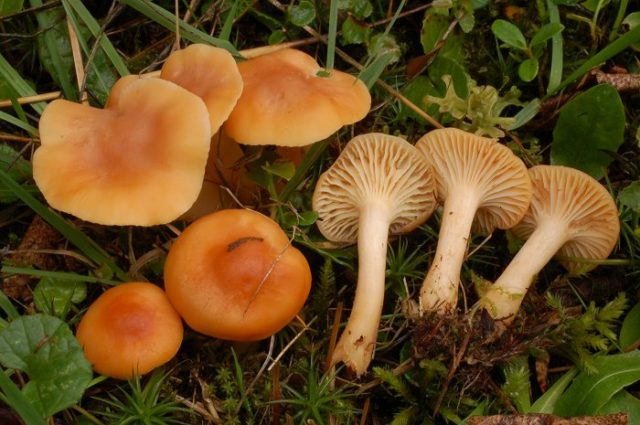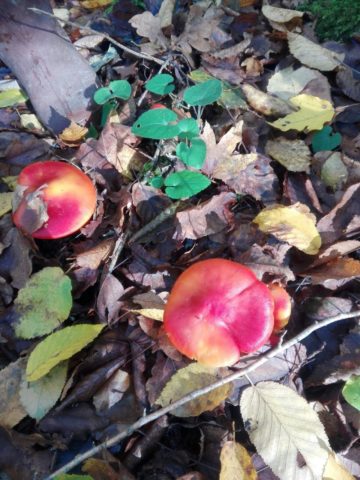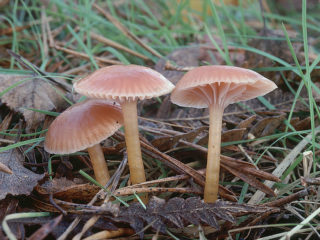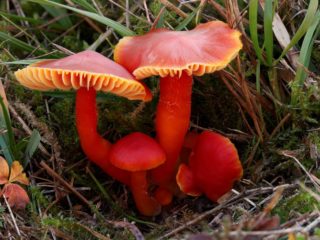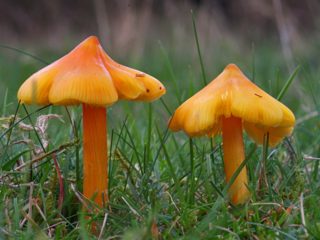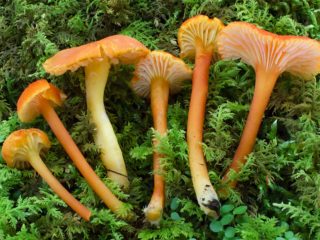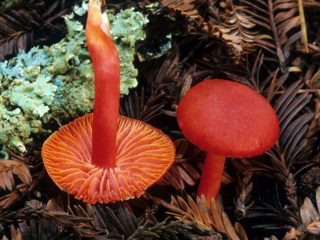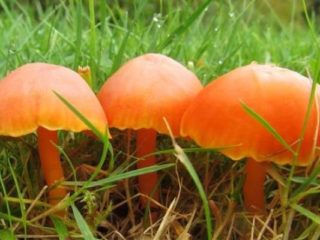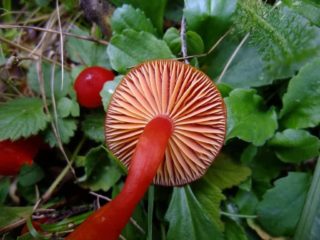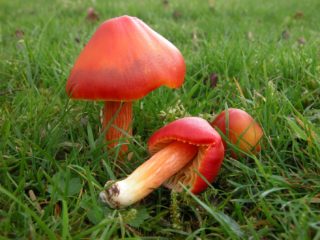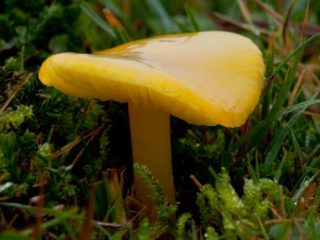Content
Hygrocybe Wax mushroom has a bright attractive appearance, especially clearly visible against the background of green summer grass. Its fruiting body is regular and symmetrical. A characteristic feature of the fungus is its ability to change its shape under the influence of moisture.
What does a hygrocybe wax look like?
The size of the fruiting body is relatively small - the cap is up to 4 cm in diameter, the leg is up to 5 cm in length. But these are record figures. Mostly there are specimens with a cap size of no more than 1 cm, and legs about 2-3 cm.
The leg thickness reaches 0.4 mm. It is very fragile because it is hollow and the consistency of the pulp is loose. There is no ring on the leg.
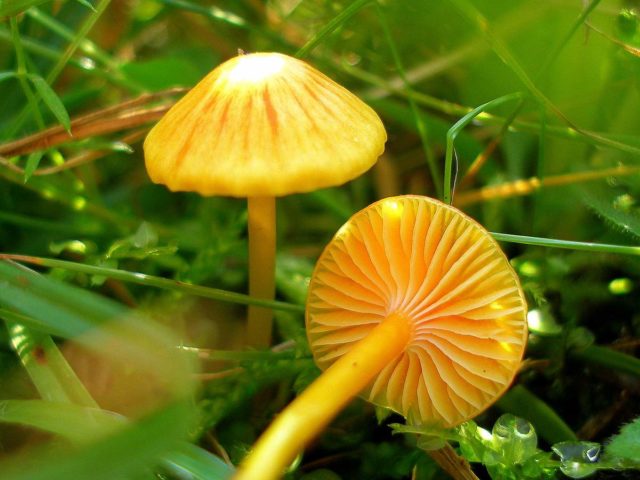
The fruiting body is completely smooth, without any roughness or inclusions.
The top of the cap is covered with a thin layer of mucus. The pulp of the fruit body is the same color as the integument. She has practically no taste and smell.
The color of this species is almost always yellow or yellow-orange. In some cases, a color change is observed: the hat may fade and become lighter. The leg, on the contrary, becomes dark.
In young specimens in the stage of active growth, the shape of the cap is convex. As it matures, it becomes almost flat. Adult and overripe fruiting bodies have caps in the form of a miniature bowl with a depression in the middle.
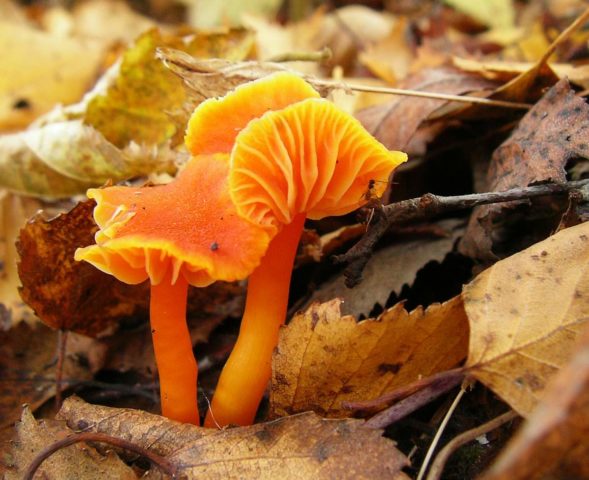
A feature of the Wax hygrocybe is its ability to accumulate moisture, which leads to swelling of the fruiting body.
The hymenophore has a lamellar structure. It is quite rare, especially for a mushroom of such a miniature size. The plates of the hymenophore are mainly attached to the pedicle. Spores are ovoid, smooth. Their color is white. Fruiting occurs in summer and autumn.
This species has several counterparts that are not poisonous. They differ from the wax hygrocybe in size and color. In all other respects, the varieties are very similar. So, for example, meadow girgocybe has a more intense orange color. In addition, she is always found in large groups.
Another twin is a crimson hygrocybe, has a longer stem (up to 8 cm), etc.
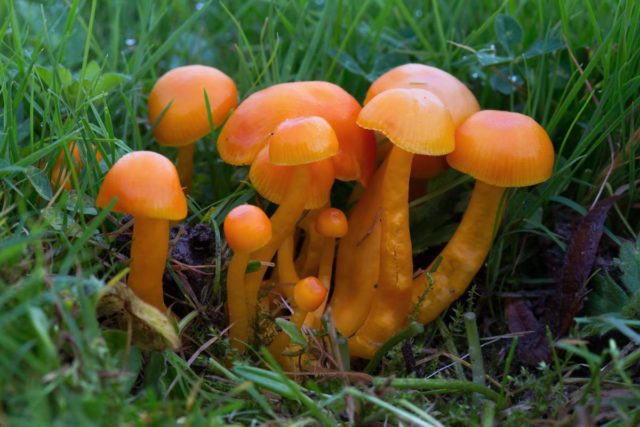
The hygrocybe has an oak hat with a rounded shape
Where does the wax hygrocybe grow
In the Northern Hemisphere, it grows almost everywhere in temperate and subtropical climates. In Asia, the mushroom is difficult to find, but it is not found in Australia, Africa and South America.
In nature, the Wax hygrocybe can occur both singly and in large groups of up to several dozen specimens. Prefers moist soils with an abundance of vegetation. In forests, it is common in the shade of trees among mosses. It is also found in meadows with tall grass.
Is it possible to eat a hygrocybe wax
This species has been relatively poorly studied, therefore, it is currently impossible to give judgments about its edibility or toxicity. Modern mycology classifies it as inedible. No cases of fatal food poisoning have been reported.
Since these species are very similar to each other, in order not to be mistaken, it is recommended that you familiarize yourself with their appearance and places of growth.
Conclusion
Hygrocybe Wax is a miniature mushroom from the Hygrophoric family. In Europe and North America, it is ubiquitous in temperate climates. It prefers to grow in deciduous forests, but it can also be in meadows with a sufficient level of moisture and high vegetation. Refers to inedible.
